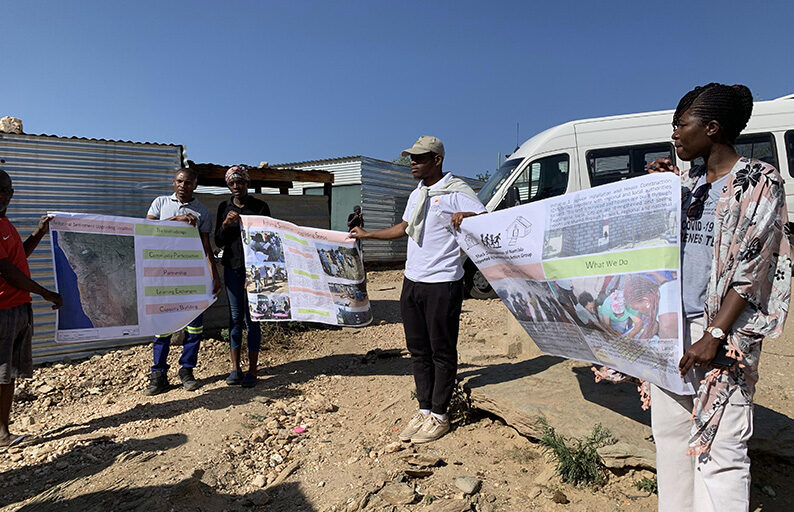The SDGs GOGLOCAL! research project aims to strengthen translocal and transdisciplinary research and teaching in how to localise and ground the SDGs meaningfully in urban planning and development practice.
The trilateral partnership between the University of Stuttgart in Stuttgart, the Namibia University of Science and Technology (NUST) in Windhoek and the Ain Shams University in Cairo (ASU) benefits from a transnational perspective. Moreover, SDGs GoGlocal! will be based on the experience of the MSc Integrated Urbanism and Sustainable Design (IUSD) involving civil society, Namibia Housing Action Group (NHAG) and the Shack Dwellers Federation of Namibia (SDFN) and representatives of local government and authorities.
Sub-Sahara Africa is urbanising at unprecedented speed. To address the dynamic processes of urbanisation, the project strategically leverages the sustainable development both within the region as well as globally. The UN Sustainable Development Goals (SDGs) put emphasis on the pressing need to “Make cities inclusive, safe, resilient and sustainable” (SDG 11). Often an integrated and transdisciplinary approaches to localise the SDGs in urban development are emphasised, but how exactly the approach works is unclear, particular the informal settlement communities.
Here the ‘SDGs GoGlocal!’ will develop a 3-pillar approach:
1. The development of teaching methods and modules at NUST,
with a focus on integrated and transdisciplinary learning. Experiences of the MSc Integrated Urbanism and Sustainable Design (IUSD) will be developed further to address the urban realities in Namibia and apply a community-based approach working with local communities and partners.
2. A multi-actor learning hub the project builds up on existing academic – civil society networks in Windhoek. It works with the Namibia Housing Action Group (NHAG) and the Shack Dwellers Federation of Namibia (SDFN) as well as representatives from different local municipalities in Namibia and the German Agency for International Cooperation (GIZ) and puts emphasis on the value of co-productive learning
3. Joint research activities within the project frame of the next three years, IUSD students will have the chance to write their Master Theses in the framework of the project and thereby firstly, will contribute to building up a knowledge base on Namibian urban development and secondly, benefit from the intercultural and multi-actor setting of ‘SDGs GoGlocal!’ to set a foundation for future joint research activities.
‘SDGs GoGlocal’ follows the principle of shared learning experiences on the ground between Namibia, Egypt and Germany. The project is funded by the German Academic Exchange Service (DAAD) and the Federal Ministry for Economic Cooperation and Development (BMZ) in the program line “SDG partnerships”.
Image credit: SI / SDGs GoGlocal



